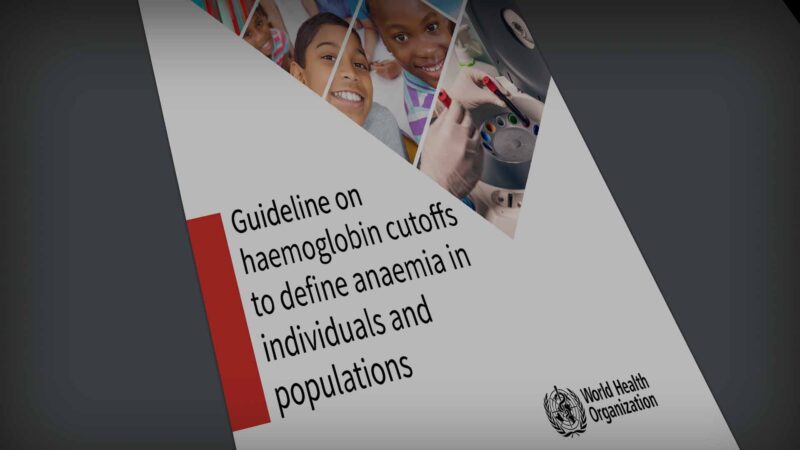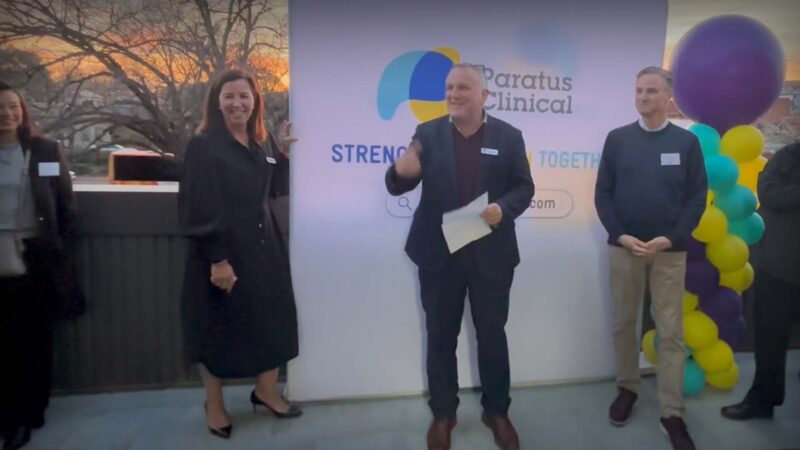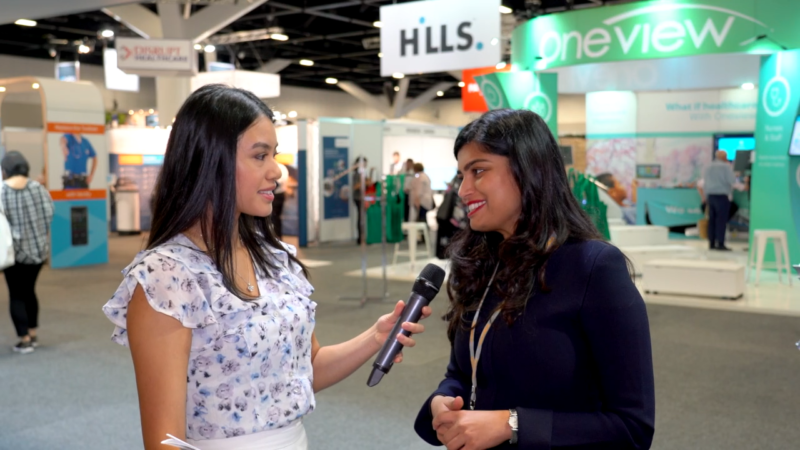GLOBAL MEDTECH COMPANY BRINGS DEVICE REPROCESSING PLANT TO AUSTRALIA Cardinal Health announces regional facility to support processing of hospital collected devices
With
Jane Crowe, Managing Director
Cardinal Health Australia and New Zealand &
Vice-Chair Medical Technology Association of Australia (MTAA)
Sabrina Lichtnegger, Lead Author
ECOFIDES Consulting GmbH, Vienna, Austria
Adam Walczak, Director of Innovation,
Hunter New England Local Health District
Ivan Waterfield, CEO
HunterNet
Australian Health Journal segment
Filmed in Sydney, Newcastle (NSW) and online | July 2024 to March 2025
It is estimated that healthcare contributes 1%–5% of the total global environmental footprint (source: The environmental footprint of health care: a global assessment, Lenzen, Manfred et al. The Lancet Planetary Health, Volume 4, Issue 7, e271 – e279)
And that Australia’s health system contributes 5.3% of the country’s greenhouse gas emissions via direct and indirect sources. Indirect sources include emissions generated in the manufacture of medical equipment and those generated from the incineration of waste. (Source: National Health and Climate Strategy, Commonwealth Government of Australia, Department of Health and Aged Care, 3 December 2023. ISBN: 978-1-74186-001-6)
Cardinal Health is global medical products manufacturer and leading provider of single-use device reprocessing services in the U.S. In Australia and New Zealand, as one of the largest suppliers of medical devices, announced on 23 May 2024 that it will be opening a single-use medical device reprocessing facility in Australia – its first reprocessing facility outside the United States.
On 18 March 2025 at the Health Innovation Living Lab at the John Hunter Hospital, a further announcement was made, on the chosen single-use medical device remanufacturing facility in Beresfield, Newcastle, set to commence operation late 2025, supported by the NSW Department of Primary Industries and Regional Development.
Australian Health Journal spoke with Jane Crowe, Managing Director Cardinal Health Australia and New Zealand, about Cardinal Health’s reprocessing investment being a key part of Australia’s healthcare ESG efforts. Crowe talks about creating new jobs in Australia, as well as reducing medical waste and reducing landfill. Equally important, it will enhance Australia’s sovereign healthcare capability and boost supply chain resiliency for Cardinal Health’s customers.
Single-use device reprocessing is a well-established industry in the U.S., with growing global adoption. Single-use medical product reprocessing has the potential to extend the life of medical devices, and significantly reduce waste. This will enable health systems in Australia and New Zealand lower waste management costs while also supporting their sustainability goals.
In 2024, a peer-reviewed Life Cycle Assessment (LCA) study* conducted by a third-party engaged by Cardinal Health showed the overall environmental footprint of a reprocessed device was on average to be 43% lower than that of a single-use device. The assessment also showed that reprocessed compression sleeves had a 40% lower carbon footprint than single-use sleeves and reduced hospital compression sleeve waste disposal costs by 90%.
The facility will utilise a TGA-approved cleaning and disinfection process to remove soil, contamination and bio-burden from single-use medical devices. They then undergo functionality and quality testing, before being returned to hospitals for reuse, rather than contributing to landfill.
As noted by Invest Regional NSW, remanufacturing offers a significant opportunity to strengthen Australia’s health technology manufacturing capabilities. A well-established industry in the U.S., it has shown to substantially reduce the environmental impact of hospitals and medical device usage.
Source: Adapted from Cardinal Health supplied copy and March 2025 Invest Regional NSW Newsletter
You Might also like
-
Landmark Australian-led study revises thresholds to diagnose and treat anaemia
In 2014, WEHI researchers began a study at the request of the World Health Organization (WHO), to formally review its global anaemia guidelines that were last updated in 1968.
Study lead and Acting WEHI Deputy Director, Professor Sant-Rayn Pasricha, speaking to Australian Health Journal said while anaemia can be diagnosed by measuring the amount of haemoglobin in the blood, there is currently no consensus on the thresholds that should be used to define the condition. -
A clinical research career working Sponsor-side, CRO-side to Site-side
In July 2025, Paratus Clinical, a Australian provider of dedicated clinical trial services, announced the appointment of Megan Morrison as its new Chief Executive Officer, at the same time as a significant milestone as the company celebrating over a decade of impact in the clinical research space. Paratus now operates a network of five purpose-built, research-only clinics along Australia’s eastern seaboard.
-
Dr Anjali Jaiprakash, Robobiologist from Queensland University of Technology
Dr Anjali Jaiprakash is a robobiologist working at the intersection of medicine, engineering and design, with a transdisciplinary approach to develop medical devices that translate robotic vision into affordable systems that can be used to improve healthcare outcomes. Anjali has experience in the fields of medical robotics, medical device, orthopaedics, trauma, bone and cartilage biology. She spoke with Anne Dao following her talk “The Robot Doctor Will See you Now” at Australian Healthcare Week 2019.
Post Views:
2,497



